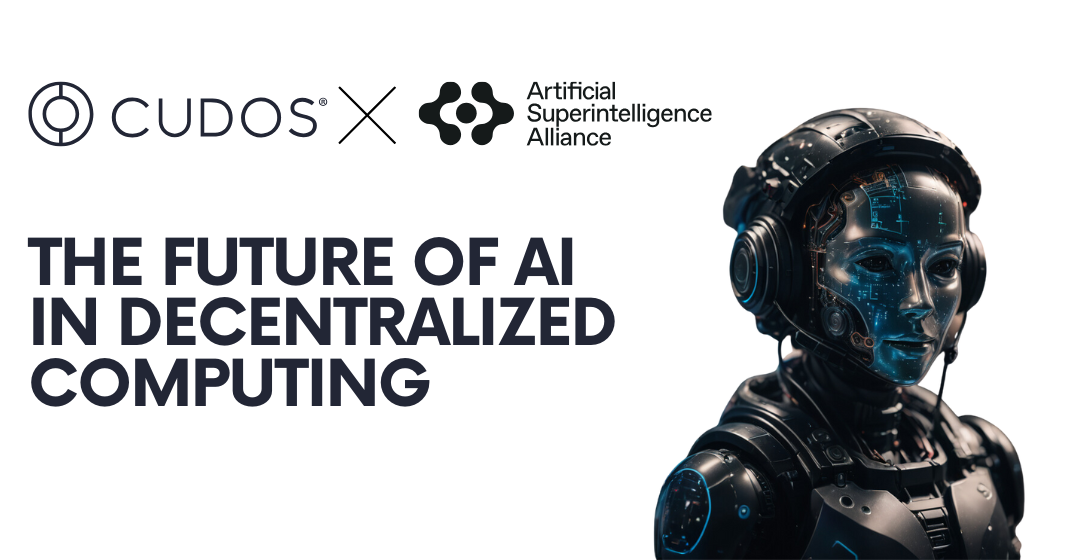The Future of AI in Decentralized Computing: How CUDOS and ASI are Paving the Way
 Sherhan
Sherhan
Artificial Intelligence (AI) and decentralized computing are two revolutionary technologies reshaping industries across the globe. However, their convergence brings unique challenges that cannot be overlooked. CUDOS, a leader in decentralized cloud computing, has recently announced a strategic merger with ASI (Artificial Superintelligence), aiming to tackle these challenges head-on. This partnership promises to revolutionize the landscape of AI and decentralized computing. Here's how.
The Challenges of AI in Decentralized Computing
Scalability and Performance:
AI applications require vast amounts of computational power, which is often difficult to scale in decentralized networks. Ensuring consistent performance across a distributed system poses a significant challenge.Data Privacy and Security:
Decentralized systems are inherently more secure due to their distributed nature. However, managing sensitive data in such an environment requires stringent privacy measures and robust security protocols.Interoperability:
Integrating AI with decentralized platforms necessitates seamless interoperability across various networks and systems. This integration can be complex and requires advanced technological solutions.Cost Efficiency:
Running AI algorithms, particularly deep learning models, can be resource-intensive and expensive. Decentralized platforms need to offer cost-effective solutions without compromising performance.
CUDOS and ASI: A Strategic Merger
The merger between CUDOS and ASI is a groundbreaking move to address these challenges. Here's how this collaboration enhances their capabilities:
Enhanced Computational Power:
By leveraging ASI's advanced AI algorithms and CUDOS's decentralized infrastructure, the merger enhances computational power. This synergy ensures that AI applications can scale efficiently across the network, providing high performance without the typical limitations of decentralized systems.Robust Security and Data Privacy:
The merger brings together the best of both worlds—CUDOS's secure decentralized infrastructure and ASI's sophisticated data management protocols. This combination ensures that sensitive data is handled with the utmost care, maintaining privacy and security across the board.Seamless Interoperability:
The integration of CUDOS with ASI enables seamless interoperability. This merger allows for smooth data flow and operational coherence across different platforms, making it easier for developers to deploy AI applications on decentralized networks.Cost-Effective Solutions:
The partnership aims to optimize resource utilization, making AI computations more cost-effective. By distributing workloads efficiently across the network, CUDOS and ASI can offer competitive pricing for high-performance AI solutions.
Conclusion
The strategic merger between CUDOS and ASI marks a significant milestone in the evolution of AI and decentralized computing. By addressing the core challenges of scalability, security, interoperability, and cost-efficiency, this partnership is set to revolutionize the industry. As we move forward, the combined strengths of CUDOS and ASI will undoubtedly pave the way for more innovative and efficient AI solutions in decentralized environments.
Subscribe to my newsletter
Read articles from Sherhan directly inside your inbox. Subscribe to the newsletter, and don't miss out.
Written by

Sherhan
Sherhan
Professional ambassador Adventure Layer, CrossFi, Fluence, Arch Network | It's time to hunt 🥩